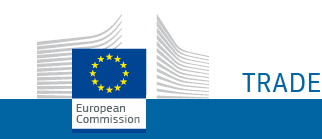Transatlantic Trade and Investment Partnership (TTIP).
EU consultation on the Investor-to-State Dispute Settlement Mechanism
Tips on making an effective response. NOTE: this consultation closes on 06/07/2014
EU consultation on the Investor-to-State Dispute Settlement Mechanism
Tips on making an effective response. NOTE: this consultation closes on 06/07/2014
|
Tell the European Commission: No to TTIP
Article from Corporate Europe Conservatory: exposing the power of corporate lobbying in the EU “When I wake up at night and think about arbitration, it never ceases to amaze me that sovereign states have agreed to investment arbitration at all […] Three private individuals are entrusted with the power to review, without any restriction or appeal procedure, all actions of the government, all decisions of the courts, and all laws and regulations emanating from parliament.” Juan Fernández-Armesto, arbitrator from Spain Thanks to public pressure across the European Union, the European Commission has launched a public consultation on one of the most worrying aspects of the Transatlantic Trade and Investment Partnership agreement (TTIP). Although we think this consultation is a piece of theatre rather than a genuine attempt at accountability, it does give us the opportunity to make our voices heard. Background The consultation focuses on the so-called Investor State Dispute Settlement (ISDS) – that’s the legal system which allows corporations to sue governments for making decision which they perceive to be detrimental to their profits. It’s a special legal system which exists just for foreign corporations. These ‘corporate tribunals’ already exist in many other investment treaties and allow multinational companies to sue countries across the world for doing no more than protecting their people and environment. Just to give a few examples:
The EU Commission’s proposals are aimed at salvaging ISDS which has faced increasing criticism in recent years from both citizens of the EU and also from those governments who have been adversely affected by their operation. In particular, governments of Ecuador, South Africa, Indonesia, Australia, Bolivia, India, Colombia and Venezuela have all either taken action against, or expressed disquiet about, the operation of ISDS. Some states are now cancelling their trade agreements with the EU precisely because of these mechanisms. ISDS should stop being used across the world – that means in all new investment treaties which the EU signs. For 10 excellent reasons to oppose TTIP – take a look at: http://corporateeurope.org/international-trade/2014/04/still-not-loving-isds-10-reasons-oppose-investors-super-rights-eu-trade |
Take action
We don’t believe these corporate tribunals serve any purpose except to enhance the power of big business. Unfortunately the EU’s consultation doesn’t ask whether we want these corporate tribunals to be included in TTIP - or whether we want TTIP at all. But we’re going to tell them anyway. The consultation is very technical, but there’s no need to answer every question. However, the Commission has hinted that it might not accept duplicate responses. Therefore, we’re providing guidance as to how you might answer the consultation. It shouldn’t take more than 5 minutes. How to respond to the consultation: Go here: http://trade.ec.europa.eu/consultations/index.cfm?consul_id=179 In general, the questions laid out by the Commission are written to sound reasonable “we want to limit the usage of corporate tribunals to prohibit the most egregious cases”. The Commission hopes that respondents will end up saying “that sounds like a reasonable way forward”. But we disagree, because we don’t believe these measures will prohibit undemocratic cases being brought. Moreover, we object to the whole notion of ISDS which privileges the interests of very large foreign ‘investors’ over the rights of everyone else. We suggest you don’t answer all the questions, but state your opposition to ISDS in any form in either question 1 or question 13. Points you might want to make: ISDS mechanisms:
You might also want to point out, in your own words that:
http://corporateeurope.org/international-trade/2014/04/still-not-loving-isds-10-reasons-oppose-investors-super-rights-eu-trade |


